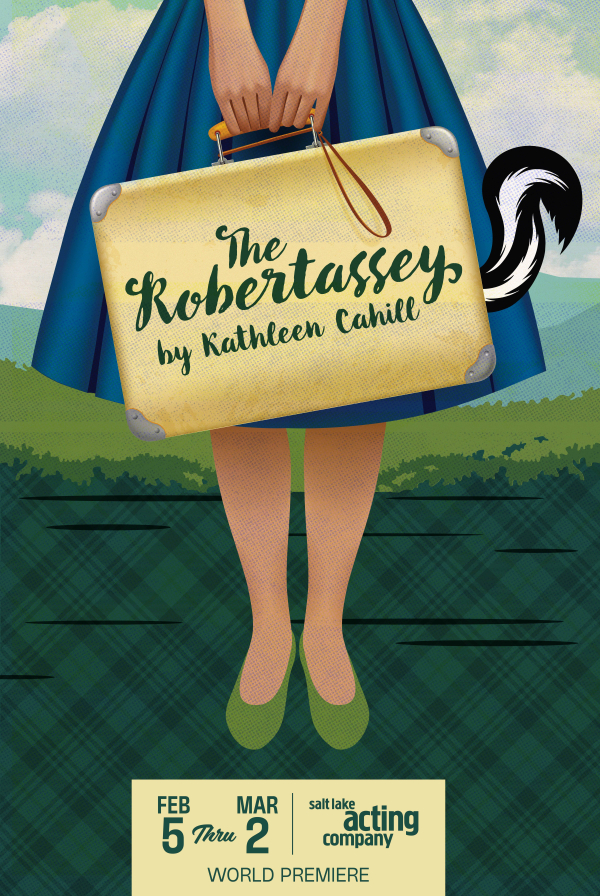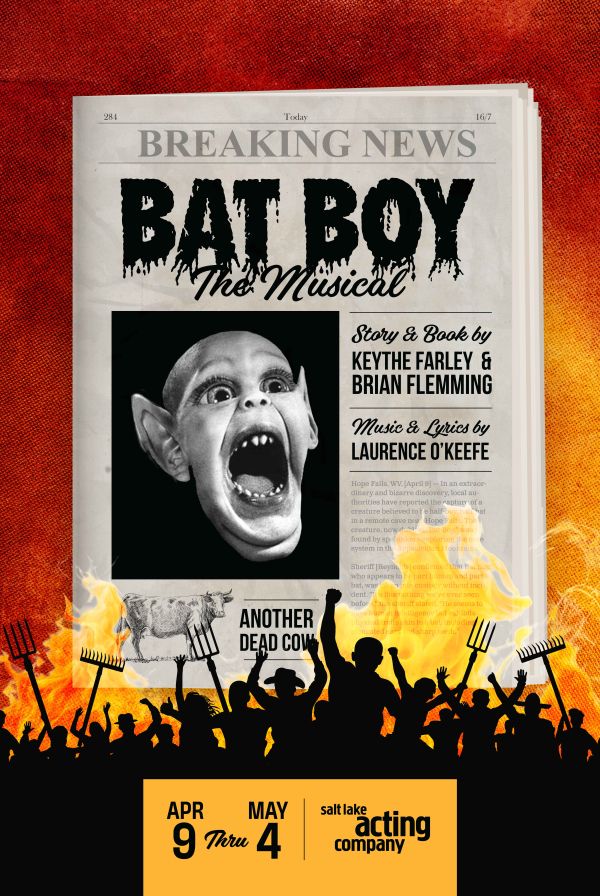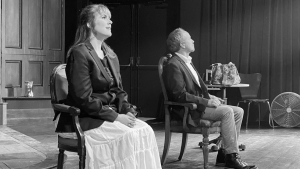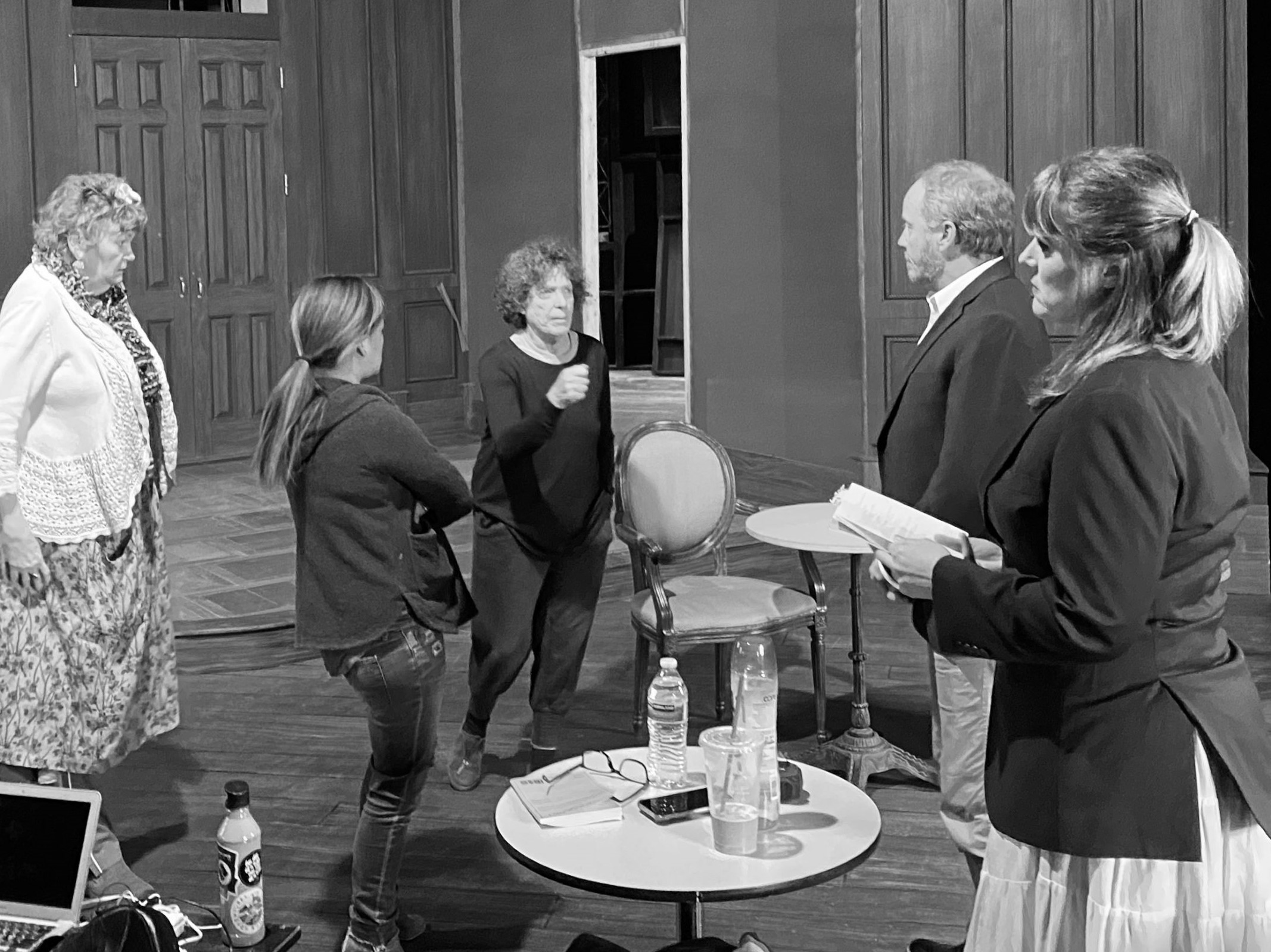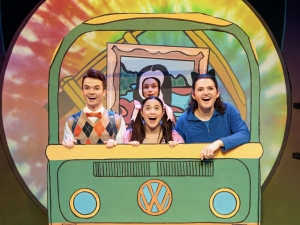Salt Lake Acting Company - 49th season
Fer Fun! Cast & Creative Announced for SATURDAY'S VOYEUR 2020
Note: Due to the COVID-19 pandemic, this production has been canceled.
Casting for the 42nd iteration of Utah's longest-running theatre tradition, SATURDAY'S VOYEUR, has been solidified. Co-created by Allen Nevins and Nancy Borgenicht, SATURDAY'S VOYEUR 2020 promises to once again pay homage to the Beehive State through biting satire and irreverant wit in Utah's biggest summer party.
This year's production will feature Voyeur alumni Daisy Ali All, Joseph Paul Branca, Eric Lee Brotherson*, Justin Ivie*, Dan Larrinaga, Matthew Tripp, Julie Silvestro Waite*, Jacob Weitlauf*, and Annette Wright.
Making their SATURDAY'S VOYEUR (and SLAC) debuts are Kimi Brown, Makena Reynolds, and Mina Sadoon.
The returning creative team includes Michael Leavitt (musical direction), Michael Horejsi (scenic design), Jesse Portillo** (lighting design), Heidi Ortega (costume design) and Jennie Sant* (stage management). The production will once again be helmed by SLAC's Executive Artistic Director Cynthia Fleming.
SATURDAY'S VOYEUR 2020 makes its world premiere at Salt Lake Acting Company June 17 - August 23, 2020. Tickets are currently on sale here.
*Member of Actors' Equity Association, the Union of Professional Actors and Stage Managers in the United States
** The lighting designer of SATURDAY'S VOYEUR 2020 is represented by United Scenic Artists Local 829 IATSE
New Play Sounding Series Presents Free Reading of New Work by Shawn Fisher on February 17th
As our record-breaking New Play Sounding Series enters its 26th year of nurturing exciting works from some of the country's most gifted voices, we're pleased to announce the February 17th reading of local playwright Shawn Fisher's new play, THE (obsolete) UNKINDNESS OF RAVENS. 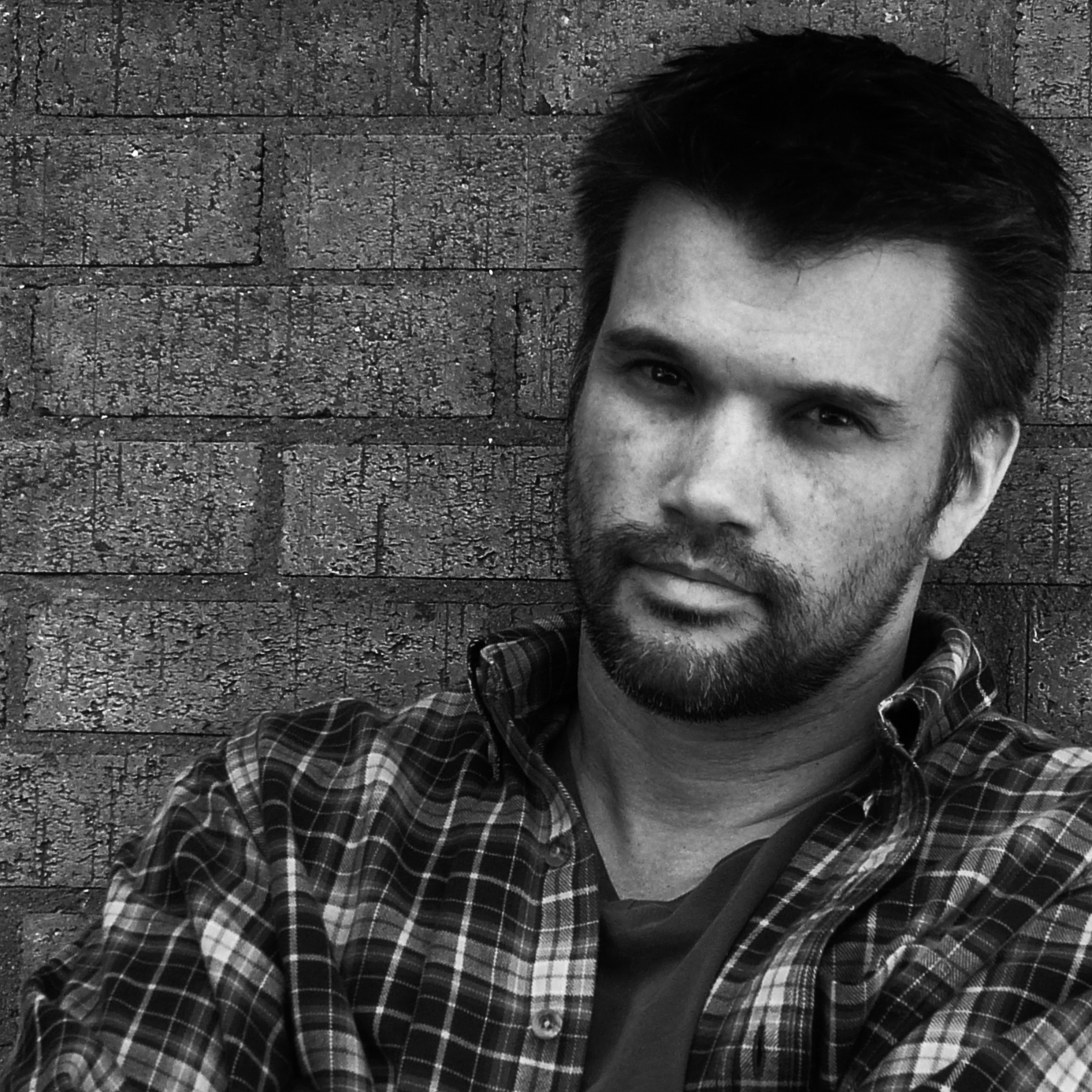 Shawn Fisher
Shawn Fisher
After many miles and days of hiking through relentless rain, six waterlogged strangers converge on a tiny mountain shelter that they are forced to share. Deb, a wilderness-loving professor of ornithology, and her wife Marley, an urban food truck chef are journeying to save their marriage by rediscovering why these two opposites fell in love in the first place. "Brando" is about to be kicked out of college and takes his awkward fantasy-loving younger step-brother, Paul, into the mountains where they discover the meaning of strength, loyalty and brotherhood. Bee, an impulsive 16 year old, and her new 40-year-old companion Edward travel the trail together, until their relationship is challenged by Bee and the others at the camp. As they each attempt to dry out and struggle for their own small patch of relief, they soon discover that some journeys are not meant to be taken alone.
THE (obsolete) UNKINDNESS OF RAVENS marks Fisher’s fourth play to receive a NPSS reading. According to the playwright, “It’s easy to convince myself that something I have written is either fabulous or disastrous, both of which are almost always wrong. There is always something worth keeping and something that needs changing, but until we experience an audience’s response and hear their feedback, it’s a lot of guesswork.” In regard to the importance of feedback from SLAC patrons, Fisher adds, “[the audiences] truly give us a sense of how the plays are being received. This is the most vital final link between the private process of sitting alone at the keyboard and a fully produced public performance of a play. I am so grateful that SLAC and the supporters of the New Play Sounding Series give us the time, space, and support to do this.”

Appearing in THE (obsolete) UNKINDNESS OF RAVENS are Mollee Barse (Marley), AJ Black (Brando), Cat Evangelho (Debra), Anne-Marie Kate (Bee), Matt Koenig (Edward), and Alex Smith (Paul). Richie Call serves as director, Cameron S. Neeley will read stage directions, and Tanner Sase is stage manager.
Founded in 1994, Salt Lake Acting Company’s New Play Sounding Series (NPSS) is the longest-running reading series of its kind in Utah. Past works that have been workshopped in the NPSS to later receive full productions at SLAC (and elsewhere) include SILENT DANCER and HARBUR GATE by Kathleen Cahill, MERCURY by Steve Yockey, STAG’S LEAP by Sharon Olds, THE AGONY AND THE ECSTASY OF STEVE JOBS by Mike Daisey, A SLIGHT DISCOMFORT by Jeff Metcalf, and THE RECEPTIONIST by Adam Bock. Elaine Jarvik’s FOUR WOMEN TALKING ABOUT THE MAN UNDER THE SHEET, featured during last season’s NPSS, will receive its world premiere at SLAC March 12-22, 2020.
THE (obsolete) UNKINDNESS OF RAVENS is free and open to the public. Reservations are required and can be made via SLAC’s website or by calling 801.363.7522.
SLAC acknowledges
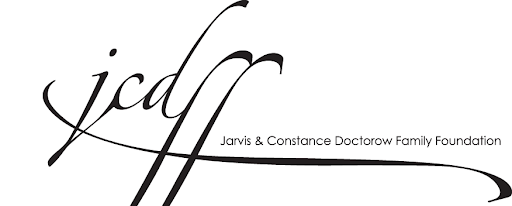
for their generous support of the New Play Sounding Series.
If you’ve never read or seen A Doll’s House by Norwegian playwright Henrik Ibsen, you still may have heard of it---that really old play about Nora Somebody who slams the door and leaves her husband and children. Shocking when it was first seen in 1879 Copenhagen---shocking still. It was a revolutionary work of domestic realism ---the first of its kind--- taking us into the marriage of a 19th Century middleclass Norwegian family. It changed theatre forever. Ibsen’s A Doll’s House is now 141 years old and continues to be one of the most performed plays in the world.
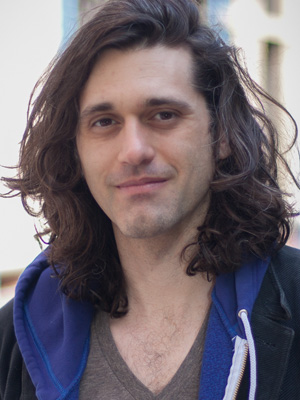 Playwright Lucas HnathLucas Hnath, DHP2 playwright ----pronounced “Nayth,” loves Ibsen. Hnath asked himself the same question audiences have been asking the past hundred plus years: When Nora Helmer slammed the door and left--- what happened to her? Hnath wanted to get inside Ibsen’s skin. Hnath found a bad translation of A Doll’s House online and started cutting and pasting Ibsen’s dialogue, re-writing it his own way. He spoke to women scholars, read George Bernard Shaw’s essays on marriage, and found inspiration in the Greeks and their love for argumentative dialogue. He kept futzing and playing until he got to the essence of what he wanted to say about marriage, divorce, family. He culled his characters down to four: Nora, the wife; Torvald, the husband; Anne Marie, Nora’s childhood Nanny and now her children’s Nanny; and Emmy, Nora’s grown daughter, whom she left when Emmy was four. DHP2 premiered at South Coast Rep and on Broadway in 2017.
Playwright Lucas HnathLucas Hnath, DHP2 playwright ----pronounced “Nayth,” loves Ibsen. Hnath asked himself the same question audiences have been asking the past hundred plus years: When Nora Helmer slammed the door and left--- what happened to her? Hnath wanted to get inside Ibsen’s skin. Hnath found a bad translation of A Doll’s House online and started cutting and pasting Ibsen’s dialogue, re-writing it his own way. He spoke to women scholars, read George Bernard Shaw’s essays on marriage, and found inspiration in the Greeks and their love for argumentative dialogue. He kept futzing and playing until he got to the essence of what he wanted to say about marriage, divorce, family. He culled his characters down to four: Nora, the wife; Torvald, the husband; Anne Marie, Nora’s childhood Nanny and now her children’s Nanny; and Emmy, Nora’s grown daughter, whom she left when Emmy was four. DHP2 premiered at South Coast Rep and on Broadway in 2017.
So. It’s fifteen years later---1894--- and Nora comes back! Why and what’s become of her? In those days, a woman on her own, could be a seamstress, a factory worker, a clerical worker, a prostitute, or a wife. Divorce was rare, shameful, one lost the respect and weight of one’s name, a scandalous black mark that lasted a lifetime. Norwegian public records from 1894 list only seven divorces! The husband, of course, could divorce in a snap. The wife had to prove infidelity, impotence, desertion--- or that, thanks to her husband, she now had syphilis. The husband had absolute custody of the children no matter who left whom. A married woman could not sign a loan, a bank check, a contract, an agreement of any sort. Had she come into the marriage with money, it now belonged to her husband. Women could not vote, could not own property, were treated like little dolls who could not think for themselves.
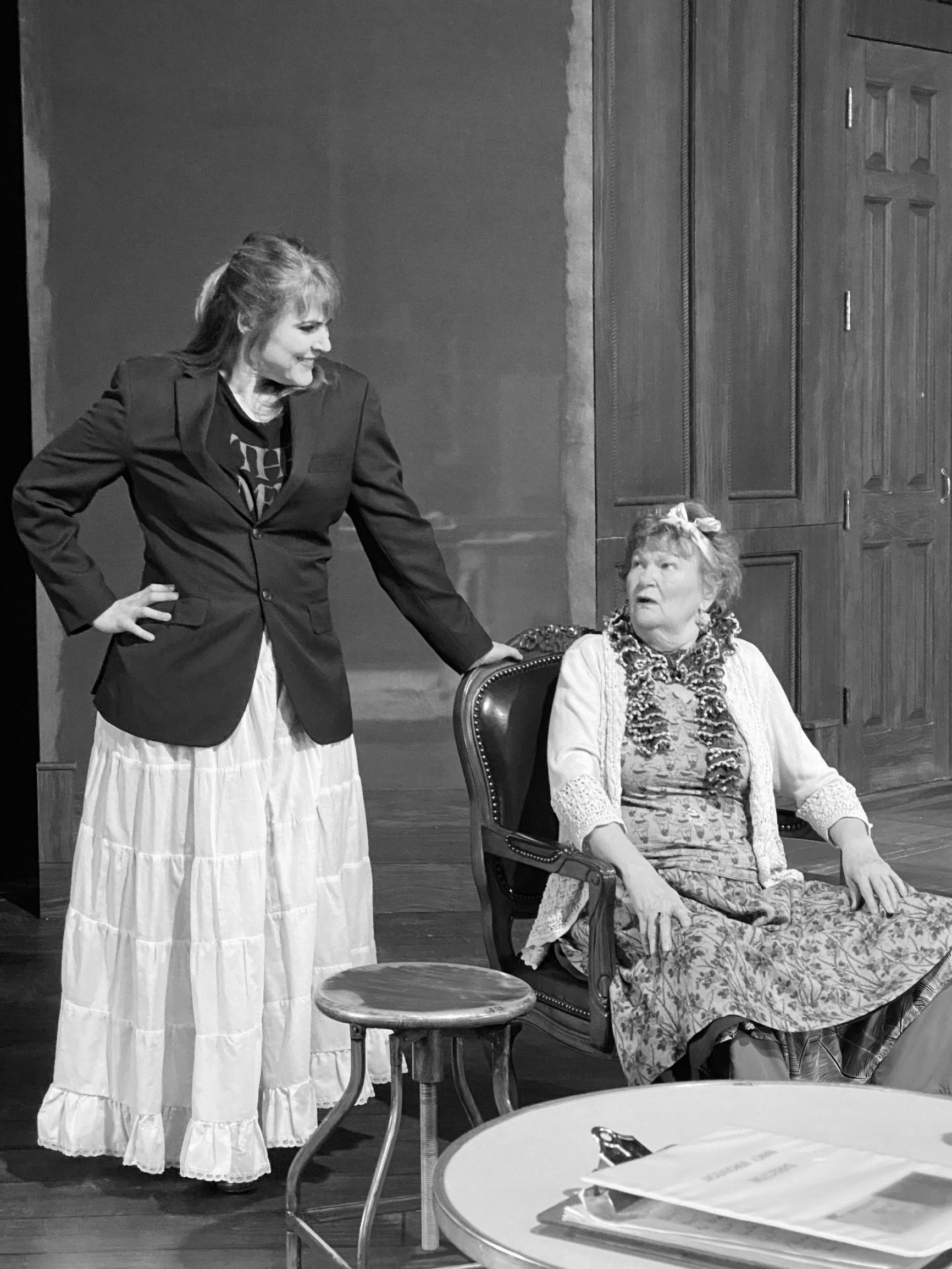
Hnath has said in interviews that one doesn’t need to know Ibsen’s A Doll’s House to see DHP2. And no question, DHP2 stands on its own. For us though, the beautiful audacity of Hnath to take on this hugely famous iconic play and character --- gave us no choice but to immerse ourselves in the original. Turns out it’s riveting. You also see why every serious actress dead or alive has played Nora or wants to play her still. The original, as well as DHP2, asks the same questions: Is marriage a viable institution? Is it even necessary? What do men want? What do women want? What does the world want and why is the world so often wrong? Can it ever be a good thing to leave or be left? How much has changed? How much has not changed?
Ibsen’s A Doll’s House is also very much about not talking. “We never talk,” Nora says, minutes before she leaves and slams the door. DHP2 is all about talking! It is a two-person verbal boxing match between Nora and Anne Marie; Nora and Torvald, Nora and Emmy. We are witnesses to four points of view where no one wins and everyone is right.
DHP2 is funny, sad, ridiculous, tragic, brave, sweet, loving, stupid, hurtful, selfish, touching, maddening---like life. DHP2 moves like a bullet train. You are totally transported into 1894 Norway ---but for some micro seconds, you may find yourself right here, right now! It’s a trip. Thank you so much for coming. Vote.
- Nancy Borgenicht
Director, A DOLL'S HOUSE, PART 2
Nancy Borgenicht (center) with Annette Wright, Production Stage Manager Jennie Sant, Paul Mulder, and Stacey Jenson
Cast & Creative Announced for World Premiere of Elaine Jarvik's FOUR WOMEN TALKING ABOUT THE MAN UNDER THE SHEET; Tickets Now on Sale
In celebration of the 150th anniverary of the first ballot cast by a woman in US history, the 100th anniversary of the ratification of the 19th amendment, and International Women's Day, Salt Lake Acting Company presents a world premiere from Utah's own, Elaine Jarvik.
On the morning of February 21, 1895, the day after the great Frederick Douglass died, Susan B. Anthony shows up on his widow’s doorstep. She is there to grieve — but is she also feeling guilty? FOUR WOMEN TALKING ABOUT THE MAN UNDER THE SHEET is an exploration of feminism and race, asking “what compromises should you make in pursuit of a cause?”
 Clockwise from top left: Colleen Baum, Latoya Cameron, Susanna Florence, Yolanda Stange, and Tamara Howell
Clockwise from top left: Colleen Baum, Latoya Cameron, Susanna Florence, Yolanda Stange, and Tamara Howell
Comprising the cast are five actors who are all making their respective returns to SLAC. Colleen Baum* (COURSE 86B IN THE CATALOGUE) plays Susan, Latoya Cameron* (FORM OF A GIRL UNKNOWN) is Zoe, Susanna Florence* (FORM OF A GIRL UKNOWN) is Helen, Tamara Howell (STAG'S LEAP) is Mrs. Stanton, and Yolanda Stange* (SURELY GOODNESS AND MERCY) is Rosetta. Baum, Florence, and Howell all revisit Jarvik's play, having appeared in the New Play Sounding Series reading earlier this year.
The production will be directed by Jason Bowcutt, with scenic design by Justin Ivie, costume design by Spencer Potter, lighting design by cade beck, sound design by Emily Chung, and stage management by Katelyn Limber*.
FOUR WOMEN TALKING ABOUT THE MAN UNDER THE SHEET plays SLAC's Chapel Theatre from March 12-22, 2020. Tickets to the special, limited engagement are available online, in person at the SLAC box office, or by calling (801)-363-7522.
*Member of Actors' Equity Association, the Union of Professional Actors and Stage Managers in the United States
"A Really, Really, Really Big Adventure": First Look at PETE THE CAT
Don't miss the Utah premiere of PETE THE CAT, playing now through December 30th!
When Pete the Cat gets caught jamming after bedtime, the cat-catcher sends him to live with the Biddle family to learn his manners. But for Pete, life is an adventure no matter where you wind up, and the minute he walks in the door, he gets the whole family rocking. The whole family that is, except for young Jimmy Biddle, the most organized second grader on planet Earth. But when Jimmy draws a blank in art class during the last week of school, it turns out Pete is the perfect pal to help him out. Together, they set out on a mission to help Jimmy conquer second grade art, and along the way, they both learn a little something new about inspiration.
-
 Trayven Call, Jacob Weitlauf, and Shelby Andersen in PETE THE CAT. Photo by dav.d daniels/ dav.d photography
Trayven Call, Jacob Weitlauf, and Shelby Andersen in PETE THE CAT. Photo by dav.d daniels/ dav.d photography
Trayven Call, Jacob Weitlauf, and Shelby Andersen in PETE THE CAT. Photo by dav.d daniels/ dav.d photography
Trayven Call, Jacob Weitlauf, and Shelby Andersen in PETE THE CAT. Photo by dav.d daniels/ dav.d photography
-
 Jacob Weitlauf, Joseph Paul Branca, Cameron Aragon, Shelby Andersen, and Trayven Call in PETE THE CAT. Photo by dav.d daniels/ dav.d photography
Jacob Weitlauf, Joseph Paul Branca, Cameron Aragon, Shelby Andersen, and Trayven Call in PETE THE CAT. Photo by dav.d daniels/ dav.d photography
Jacob Weitlauf, Joseph Paul Branca, Cameron Aragon, Shelby Andersen, and Trayven Call in PETE THE CAT. Photo by dav.d daniels/ dav.d photography
Jacob Weitlauf, Joseph Paul Branca, Cameron Aragon, Shelby Andersen, and Trayven Call in PETE THE CAT. Photo by dav.d daniels/ dav.d photography
-
 Jacob Weitlauf and Cameron Aragon in PETE THE CAT. Photo by dav.d daniels/ dav.d photography
Jacob Weitlauf and Cameron Aragon in PETE THE CAT. Photo by dav.d daniels/ dav.d photography
Jacob Weitlauf and Cameron Aragon in PETE THE CAT. Photo by dav.d daniels/ dav.d photography
Jacob Weitlauf and Cameron Aragon in PETE THE CAT. Photo by dav.d daniels/ dav.d photography
-
 Cameron Aragon, Jacob Weitlauf, Shelby Andersen, Trayven Call, and Joseph Paul Branca in PETE THE CAT. Photo by dav.d daniels/ dav.d photography
Cameron Aragon, Jacob Weitlauf, Shelby Andersen, Trayven Call, and Joseph Paul Branca in PETE THE CAT. Photo by dav.d daniels/ dav.d photography
Cameron Aragon, Jacob Weitlauf, Shelby Andersen, Trayven Call, and Joseph Paul Branca in PETE THE CAT. Photo by dav.d daniels/ dav.d photography
Cameron Aragon, Jacob Weitlauf, Shelby Andersen, Trayven Call, and Joseph Paul Branca in PETE THE CAT. Photo by dav.d daniels/ dav.d photography
-
 Jacob Weitlauf and Joseph Paul Branca in PETE THE CAT. Photo by dav.d daniels/ dav.d photography
Jacob Weitlauf and Joseph Paul Branca in PETE THE CAT. Photo by dav.d daniels/ dav.d photography
Jacob Weitlauf and Joseph Paul Branca in PETE THE CAT. Photo by dav.d daniels/ dav.d photography
Jacob Weitlauf and Joseph Paul Branca in PETE THE CAT. Photo by dav.d daniels/ dav.d photography
-
 Trayven Call, Shelby Andersen, Joseph Paul Branca, Jacob Weitlauf, and Cameron Aragon in PETE THE CAT. Photo by dav.d daniels/ dav.d photography
Trayven Call, Shelby Andersen, Joseph Paul Branca, Jacob Weitlauf, and Cameron Aragon in PETE THE CAT. Photo by dav.d daniels/ dav.d photography
Trayven Call, Shelby Andersen, Joseph Paul Branca, Jacob Weitlauf, and Cameron Aragon in PETE THE CAT. Photo by dav.d daniels/ dav.d photography
Trayven Call, Shelby Andersen, Joseph Paul Branca, Jacob Weitlauf, and Cameron Aragon in PETE THE CAT. Photo by dav.d daniels/ dav.d photography
-
 Trayven Call, Joseph Paul Branca, Shelby Andersen, and Jacob Weitlauf in PETE THE CAT. Photo by dav.d daniels/ dav.d photography
Trayven Call, Joseph Paul Branca, Shelby Andersen, and Jacob Weitlauf in PETE THE CAT. Photo by dav.d daniels/ dav.d photography
Trayven Call, Joseph Paul Branca, Shelby Andersen, and Jacob Weitlauf in PETE THE CAT. Photo by dav.d daniels/ dav.d photography
Trayven Call, Joseph Paul Branca, Shelby Andersen, and Jacob Weitlauf in PETE THE CAT. Photo by dav.d daniels/ dav.d photography
-
 Joseph Paul Branca, Jacob Weitlauf, and Cameron Aragon in PETE THE CAT. Photo by dav.d daniels/ dav.d photography
Joseph Paul Branca, Jacob Weitlauf, and Cameron Aragon in PETE THE CAT. Photo by dav.d daniels/ dav.d photography
Joseph Paul Branca, Jacob Weitlauf, and Cameron Aragon in PETE THE CAT. Photo by dav.d daniels/ dav.d photography
Joseph Paul Branca, Jacob Weitlauf, and Cameron Aragon in PETE THE CAT. Photo by dav.d daniels/ dav.d photography
-
 Joseph Paul Branca, Cameron Aragon, Shelby Andersen, and Jacob Weitlauf in PETE THE CAT. Photo by dav.d daniels/ dav.d photography
Joseph Paul Branca, Cameron Aragon, Shelby Andersen, and Jacob Weitlauf in PETE THE CAT. Photo by dav.d daniels/ dav.d photography
Joseph Paul Branca, Cameron Aragon, Shelby Andersen, and Jacob Weitlauf in PETE THE CAT. Photo by dav.d daniels/ dav.d photography
Joseph Paul Branca, Cameron Aragon, Shelby Andersen, and Jacob Weitlauf in PETE THE CAT. Photo by dav.d daniels/ dav.d photography
-
 Shelby Andersen, Trayven Call, Jacob Weitlauf, Joseph Paul Branca, and Cameron Aragon in PETE THE CAT. Photo by dav.d daniels/ dav.d photography
Shelby Andersen, Trayven Call, Jacob Weitlauf, Joseph Paul Branca, and Cameron Aragon in PETE THE CAT. Photo by dav.d daniels/ dav.d photography
Shelby Andersen, Trayven Call, Jacob Weitlauf, Joseph Paul Branca, and Cameron Aragon in PETE THE CAT. Photo by dav.d daniels/ dav.d photography
Shelby Andersen, Trayven Call, Jacob Weitlauf, Joseph Paul Branca, and Cameron Aragon in PETE THE CAT. Photo by dav.d daniels/ dav.d photography
https://saltlakeactingcompany.org/style-guide/itemlist/tag/49th%20season#sigProId75af098dc5
Comprising the cast are Cameron Aragon (Olive), Jacob Weitlauf (Pete the Cat), Joseph Paul Branca (Jimmy), Shelby Andersen (Mom), and Trayven Call (Dad). Weitlauf and Branca return to SLAC’s Upstairs Theatre after appearing in SATURDAY’S VOYEUR 2019. Call recently appeared in SLAC's world premiere of FORM OF A GIRL UNKNOWN. Andersen appeared previously in CIRCLE MIRROR TRANSFORMATION, 4000 MILES, and the 2012 children’s production CLICK, CLACK, MOO: COWS THAT TYPE. Aragon makes her Salt Lake Acting Company debut with PETE THE CAT.
Penelope Caywood, Artistic Director of the University of Utah Children’s Theatre, returns for her 10th children’s production at SLAC. She directs, choreographs, and provides musical direction for PETE THE CAT. Rounding out the creative team are Gage Williams (scenic design), Dennis Hassan (costume design), Justin Ivie (props design) and Jesse Portillo (lighting design).
PETE THE CAT runs through December 30th. Tickets can be obtained here, in person at the SLAC box office, or by calling 801-363-7522.
Playwright Will Snider on the Utah Premiere of DEATH OF A DRIVER
Note: The following remarks by DEATH OF A DRIVER Playwright Will Snider originally appeared in the production's playbill under the title "In the Room with Will Snider"

Salt Lake Acting Company and DEATH OF A DRIVER
By 2017, DEATH OF A DRIVER was dead. I wrote the first draft three years earlier and sent it to theaters hoping it would get a production. It didn’t. So I moved on. I wrote other things and filed this one away. Every six months I would reread the script and find myself missing the story of Kennedy and Sarah, wanting to see it on stage, but I didn’t think it would happen.
Then, just before Christmas 2017, I got an email from [former Associate Artistic Director] Shannon Musgrave inviting me to Utah. SLAC was hosting writers to work on plays without the pressure of a final presentation. They called it the Playwrights’ Lab. We were given a week in a room with a team of collaborators to do whatever we thought the play needed. I was lucky to have Patrick and Cassie, the two actors you will see tonight, and Andra, their director. We worked through the script scene-by-scene and staged it in several configurations. All the while I got feedback from Cynthia Fleming, David Kranes, and other Lab artists and made adjustments to the final scenes. By the end of the week, the play was back to life - it went on to have a world premiere starring Patrick in New York earlier this year. And now it’s come home to Utah, to the place responsible for its rebirth. Thank you to Cynthia and everyone else at SLAC for all you do for writers like me. Without the Lab, this play would never have been produced.
The Origins of the Play
“No one has a right to work in a place where their family doesn’t deal directly with the consequences of the work they do.”
I paraphrase words delivered by one of my college professors, Mahmood Mamdani, an anthropologist critical of foreign aid in his home country of Uganda. I listened to him, loved his writing and lectures, and immediately upon graduation violated his dictum. For three years I worked for an agricultural nonprofit in Kenya and Ethiopia that offered microloans of seed and fertilizer to small-scale farmers. We conducted rigorous harvest measurements to determine impact. We ran longitudinal household surveys to determine our effect on health and education.I believed then, and still do, that a good deal of development work is flawed and ineffective, but I felt our methods were different, we were different, I was different. Was I?
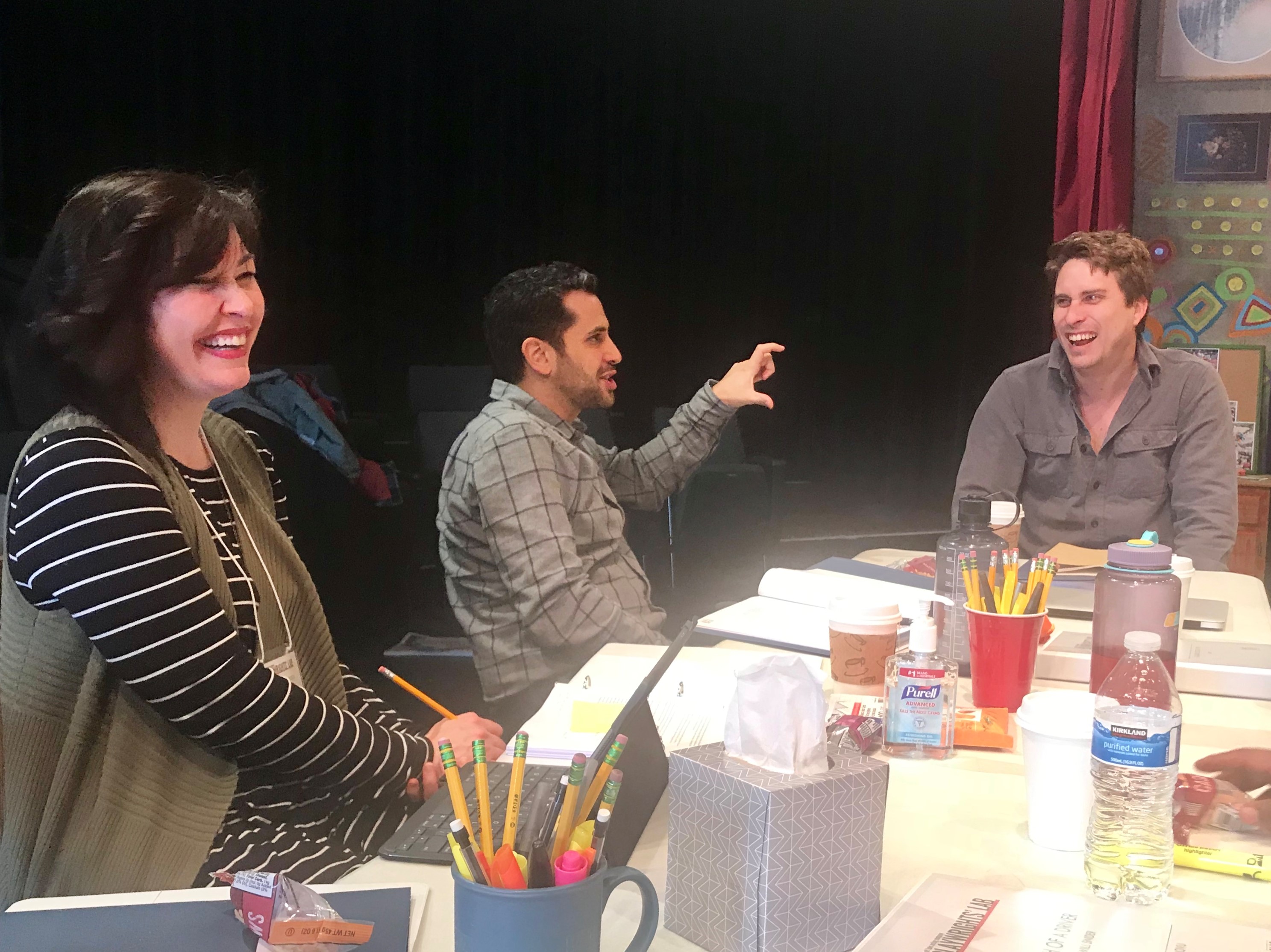
Alexandra Harbold, Kareem Fahmy, and Will Snider at the 2018 Playwrights' Lab
My language back then was the language of management consultants, of tech entrepreneurs, of MBA programs, and the use of this language resulted from, and reinforced, a reflexive anti-government stance, a feeling that solutions to socioeconomic problems were found far from polling stations, often in places that looked more like boardrooms. To me, electoral politics was a sideshow, a competition between elites, the result of which mattered little to the subsistence farmers I hoped to help. Anthropologist James Ferguson takes exception this. In his book The Anti-Politics Machine he criticizes development work for serving state needs above local needs, for being anti-political in the ways it ignores, and therefore supports, the political establishment. The more materially transformational foreign-led work is, the more it “helps,” the more it sustains the political status quo, which, in many places with significant foreign aid, is often ineffective if not outright oppressive. A bad government takes credit for good work.
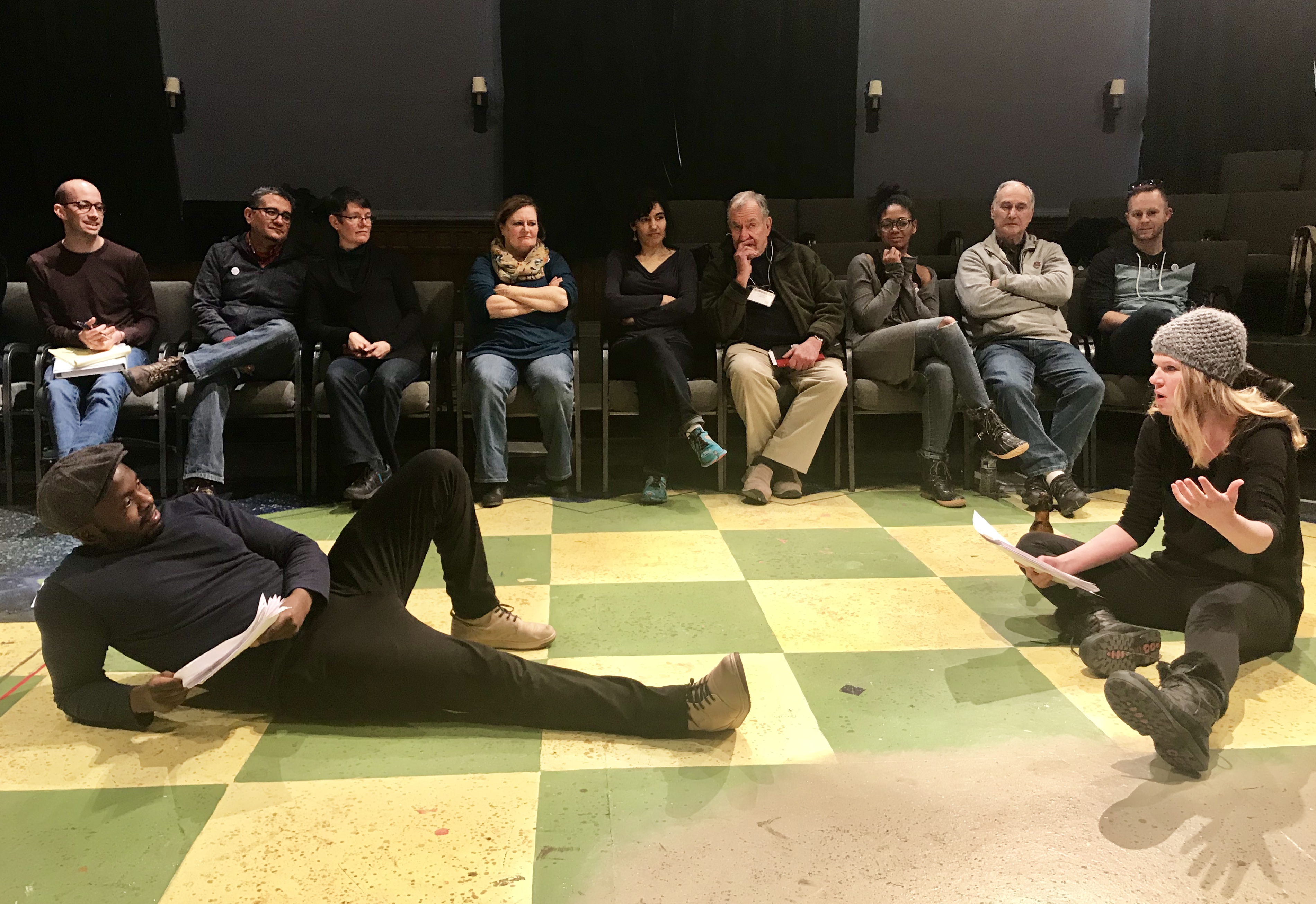
Patrick J. Ssenjovu and Cassandra Stokes-Wylie rehearse during the 2018 Playwrights' Lab
But another part of me finds this argument too easy, a case for inertia, for ignoring pressing problems because they should be solved by local politics and therefore not solving them. Bad governments also have the ability to co-opt this anti-development discourse to defend their own legitimacy. And there is no way to close borders completely – the asymmetric exchange of resources, ideas, languages, and people cannot simply end, even if some wish it could. And so how do we go about transnational work ethically? Is there a way? DEATH OF A DRIVER is much more than the dramatization of my own cognitive dissonance around my early professional life, but I name it as one of the animating anxieties in the writing. It’s one way to watch the play – there are many others. This is the story of two people, of what we like to call the “personal,” and the way that this “personal” is transformed and constrained by national, cultural, economic, and gender difference. And I hope it’s not boring.
Thanks for coming.
Cast & Creative Team Announced for Utah Premiere of Lucas Hnath's A DOLL'S HOUSE, PART 2
Casting has been finalized for A DOLL’S HOUSE, PART 2 by Lucas Hnath. The sequel (of sorts) to Ibsen’s A DOLL’S HOUSE makes its Utah premiere after a successful run on Broadway that was nominated for eight 2017 Tony Awards.
Nora Helmer leaving her husband and children at the end of Ibsen’s 1879 masterpiece was the “door slam heard ‘round the world.” Fifteen years later, there’s a knock at that same door. Nora’s back. But why? And where has she been?
Stacey Jenson* makes her SLAC debut as Nora Helmer. She has been seen elsewhere in Utah in GIDION’S KNOT (Pinnacle). Jenson is joined by Paul Mulder* (SEEING THE ELEPHANT) as Torvald, Annette Wright (BLOODY BLOODY ANDREW JACKSON, SATURDAY’S VOYEUR) as Anne Marie, and Rachael Merlot, who is also making her SLAC debut with this production, as Emmy.

Directing the production is SATURDAY’S VOYEUR creator Nancy Borgenicht, who has been an integral part to Salt Lake Acting Company since 1974. Her previous directing credits at SLAC include 2018’s STAG’S LEAP.
Borgenicht is joined on the creative team by Erik Reichert (Scenic Design), La Beene (Costume Design), Matt Taylor (Lighting Design), Katelyn Limber (Sound Design), and Sara Shouse (Hair Design).
A DOLL’S HOUSE, PART 2 plays in SLAC’s Upstairs Theatre February 5 through March 8, 2020. Tickets can be obtained via tickets.saltlakeactingcompany.org, in person at the SLAC box office, or by calling 801.363.7522.
*Member of Actors' Equity Association, the Union of Professional Actors and Stage Managers in the United States
Casting has been finalized for Salt Lake Acting Company’s world premiere production of form of a girl unknown by Charly Evon Simpson.
Amali is twelve years old, she is wise, and she is fascinated – by A Midsummer Night’s Dream; by her changing body; by the story of the children killed in the woods. With humor, magic, blood, and fire, this play is not your typical coming-of-age story.
Making her Salt Lake Acting Company debut is Amanda Morris*, who plays Amali. A resident of New York City, she was previously seen by Utah audiences in Lyric Rep’s A RAISIN IN THE SUN.
Daisy Allred, Aaliyah Ann*, and Bradley Hatch all return to the SLAC Upstairs Theatre, having appeared in SATURDAY’S VOYEUR 2019. They play Marina, Charise, and Finn, respectively. Latoya Cameron* (THE CAKE) and Susanna Florence* (PTC’s SWEAT) return to form of a girl unknown after appearing in the New Play Sounding Series workshop production (co-presented by The Davey Foundation) last summer. Cameron plays Ma and Florence plays Dr G/Policewoman.

The production is helmed by Ars Nova and Atlantic Theatre Company alum Melissa Crespo, who also directed a form of a girl unknown workshop at Westport County Playhouse earlier this year.
Crespo is joined on the creative team by Shoko Kambara (Scenic Design), Alicia Washington (Costume Design), Jessica Greenberg (Lighting Design), Jennifer Jackson (Sound Design), and Linda Brown (Specialty Prop Design). The production will be stage managed by Jennie Sant*.
form of a girl unknown runs October 16 through November 17, 2019. Tickets can be obtained via tickets.saltlakeactingcompany.org, in person at the SLAC box office, or by calling 801.363.7522.
*Member of Actors' Equity Association, the Union of Professional Actors and Stage Managers in the United States







